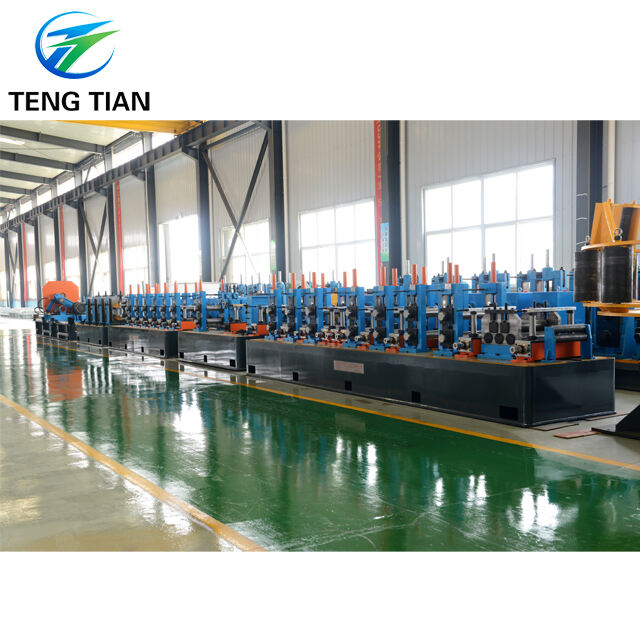Introduction
Oil and gas companies will depend on the manufacturing of these steel pipes to transport resources from one place to another while assuring compatibility and good for safety measures. Manufacture and simplification of these steel tubes take place at API (American Petroleum Institute) pipe mills, which are machined to meet long guidelines made by the API for quality and safety of steel pipes used in diverse purposes. This week's posts examines the world of API pipe mills and how these facilities advance the efficiency of steel pipe production by tapping innovations to improve their performance.
Understanding API Pipe Mills
API pipe mills are state of the art mills and specifically designed to manufacture steel pipe that meets stringent quality requirements set by API. These pipes are used in the oil and gas applications which include transportation, drilling and exploration. Different specifications specify different range of pipe fixtures — seamless, ERW (electric resistance welded), dimension & testing for properties from material.
Important Parts of An API Pipe Mill
The design as well as the application of high technology blends in with a couple of reasons why API pipe mills are productive. Major components are the billet heating furnaces (for bringing the steel to a malleable temperature), piercing mills (forming the initial profile of a pipe), and rolling mills/sizing machines for fine-tuning each section into its final size. These pipes are then put through cooling systems and undergo heat treatment processes to further increase their material properties, while inspection & quality control systems accommodate adherence to all API standards.
API Pipe Mills — Efficiency Improvements
The push for more and better efficiency in API pipe mills has clearly resulted in the automation, control technology, high-speed rolling processes pros, but also opposites. These technologies are capable not only to increase process productivity, but to maintain integrity of the same file types in every separate Case — precision in production. Tailor-made production methods eliminate waste and optimize material efficiency, and the ability to customize ensures that API pipe mills can adapt their product offering in line with diverse market requirements.
API Pipe Mills: Technological Innovations
API pipe mills are forever advancing in innovations, enhancing efficiency and quality. An example of such is the innovation in high-performance ERW pipes for line pipe applications, transforming it to what it is today. The progress of measurement technology and quality assurance systems, such as multiprobe ultrasonic testing, are improving the weld seam quality and safety. Such advancements are essential to serve the market for large diameter, heavy-wall pipes that is booming in demand for severe service applications.
API Pipe Mills Problems & Solutions
However, improvements or not, API pipe mills will continue to face challenges in finding and keeping the right material on spec to account for market with new regulations from API requirements. These challenges can be overcome through extensive material testing, equipping with top-class equipment and continuous process optimization. Reasonable adaptation to these changes is to become the development focus of steel pipe manufacturing industry.
Efficiency Improvements for Industry With the API Pipe Mills
API pipe mills play an important part in the efficiency of the oil and gas sector. These add to making of top notch steel pipes that can stand the pressures and adverse properties while becoming transferred via oil and gas delivery. Adhering to those API standards is crucial to ensuring the quality and safety of pipelines and drilling equipment.
The Future of API Pipe Mills
In line with the API pipe mill development trend, future APIs pipe mill will be smarter and more environmentally friendly. Female pushing techniques and other production practices UN agencies area unit a lot of environmentally friendly we are going to conjointly see technical developments in pipe style and materials that may improve the performance of pipes.
Conclusion
For manufacturers of steel pipes, API pipe mills play a role as an assistant which can help them to maximum the efficiency and quality. Above all, API specifications adoption spurs innovation and helps protect the safety of the industry. The requirement for top-grade steel pipes will lead to an on-going struggle with improvements in the efficiency and technology used in API pipe mills. The constant need of the sector to innovate while maintaining sustainability guarantees that API pipe mills shall remain very much an integral part in manufacturing steel pipes, used for oil & gas applications, and well beyond.

